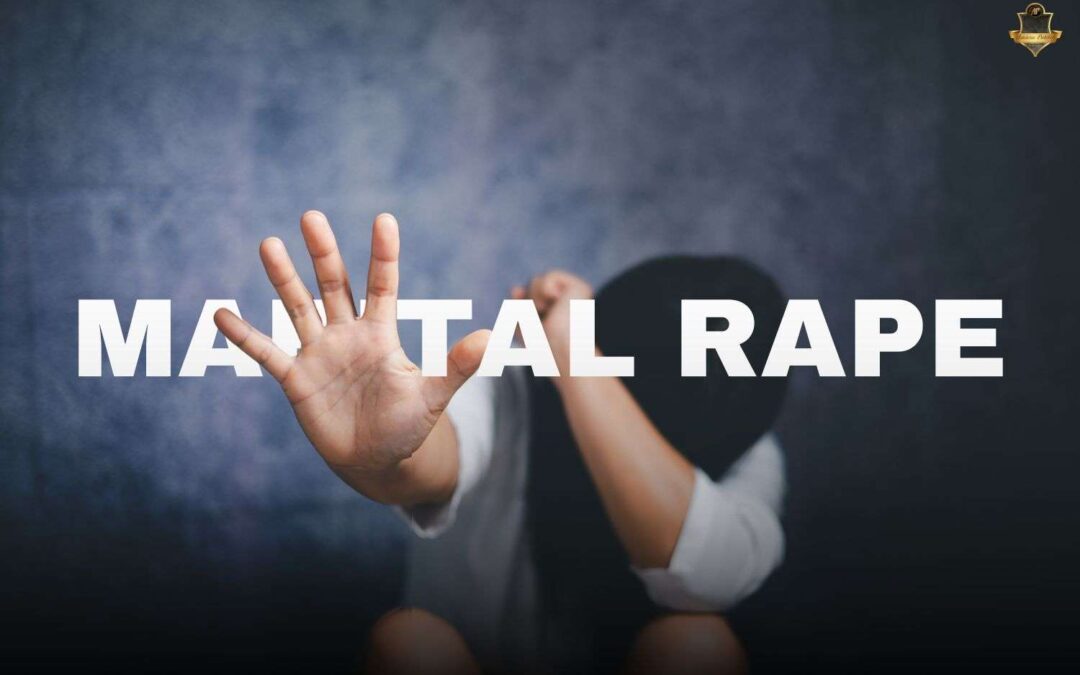INTRODUCTION
In India, the legal treatment of marital rape remains a contentious issue, with the act not recognized as a criminal offense under the Bharatiya Nyay Sanhita (BNS). While Section 63 of the BNS criminalizes rape, it contains an exception stating that sexual intercourse by a man with his own wife, if she is not under the age of 18, does not amount to rape. This exemption, rooted in historical and cultural norms, has been the subject of widespread criticism, raising significant questions about the rights, autonomy, and dignity of married women.
The reluctance to criminalize marital rape in India is often defended on grounds of preserving the sanctity of marriage, concerns about misuse of the law, and cultural sensitivities. However, this position stands in contrast to international human rights standards and the laws of many countries where marital rape is recognized as a crime. The debate is further complicated by societal expectations of marriage and a lack of awareness surrounding the concepts of consent and bodily autonomy within the institution of marriage.
This legal anomaly has prompted calls for reform, with activists, legal scholars, and various stakeholders arguing that the existing exception in the law is discriminatory, violates constitutional rights, and perpetuates gender inequality. This issue poses important questions about the intersection of law, personal liberty, and traditional societal structures in India.
ESSENTIAL ELEMENTS OF RAPE
For any Crime to be committed in BNS, it has to fulfill certain elements of that crime as the law describes. If any of the elements are absent or doubted to have occurred then the accused receives the benefit of the doubt and it is said that the crime is not proved beyond a reasonable doubt. The bare reading of section 63 of the BNS gives us the following elements-
- Rape is committed by a man.
- Commits any of the four acts in section 63 (a) through (d) with the following conditions
- against her will
- without her consent
- with her polluted consent (meaning that her consent is not valid as per clauses i, ii, and iii)
- when she is under 18 years of age.
- when she is unable to communicate her consent.
To sum it up, if the woman didn’t give her consent for the activity and the man is the perpetrator, then that will constitute Rape in BNS. The challenging part is how the actions of the litigants are to be proved in court. Consent is not an easy thing to be conclusively proved, it is always the practice to rely on the circumstances and that circumstantial evidence is used to prove whether there was consent or not. Now, in the case of marriage, where the girl is above 18 years old, it is an assumption taken by the drafters of this law, that the marriage itself works as a standing consent given by her to her husband. This is merely a convenience opted by the legal system of India to keep these matters relatively simple.
THOUGHT EXPERIMENT
Let us assume, that Marital Rape is now made an offence, a case is filed in the court. Now the burden of proof for section 63, is on the accused, to prove his innocense, unlike the general presumption where the petitioner or the prosecution has the burden to prove that the accused is the perpetretor of the crime he allegedly committed. In case of section 63, the prosecution only have to prove a prima facie case to the court, a standard much easier to achieve than the standard of proving the crime beyond reasonable doubt. Continuing that example, following the standards discussed, it becomes impossible for the husband to prove that his wife had given her consent for the act. As they are cohabitating, it is not hard for the prosecution to obtain medical report of the wife that will conclusively prove that husband was physically involved with her wife recently. It gives the wife immense power in the law, just to whimsically complaint about her husband and get him jailed without bail and possibly convict him for the crime without leaving any room for defence.
Maybe, you as a layman would think, why a woman would lie about such a thing. We should just believe her statement and effectively make marital rape a crime, and expect the wives in the Indian Society, to invoke such a provision of law, only when they had sufferred genuinely. Think about the consequences that will ensue if following that logic, Marital Rape is made a crime. Let me assisst you in that thought. There is already a study that shows that only 28% of the Rape Crimes leads to conviction, that means that other 72% of the cases didn’t have enough proof on file to reach the standard of proving beyond reasonable doubt. Now this data doesn’t show the probability that how many of those 72% of the cases could be false cases, but it can be said that not all of these cases are true.
In a recent judgement, the woman falsely accused a man was given punishment for doing so, because in the process, the man who was falsely accused also suffered consequences from the society. This goes on to show why the law works on the presumption of “innocent until proven guilty”.
That is why Marital Rape is not an offense in India yet, as it would become impossible for the husband to defend himself in a court of law, no matter how false the allegation is.
RAY OF HOPE
All the above discussion was on legal merit. Now, does that mean if a wife is a victim of Rape by her husband, she cannot do anything. The answer is yes, she can do something about it. The wife has the option of pursuing the case of domestic violence, or file for divorce on grounds of physical abuse by husband or there may be more avenues of prosecuting or living the husband depending on the facts of the case.
If you are victim, and you want to approach the court, but don’t know who to contact; you can also contact on the information given at the end of this article to get in touch with our office to advise you on the best possible course of action for your problem.
Section 12 of the Legal Service Authority Act, 1987 also gives the right to woman and children to approach court with the help free legal aid that can be availed by contacting their legal aid counsel premises available in every district.
CONCLUSION
“Ubi jus ibi remedium”- this latin phrase translates to “if there is a wrong, there is a remedy for it”. If you are a victim who has fortunately found this article online, then feel free to contact us for legal help. Marital Rape might not be codified offence in Indian Law, the victim can still safeguard herself legally, which depends case to case. If you are any other person who is reading this for academic purposes; for now, Marital Rape is not possible as it would infringe Article 14 and 15 of the Constitution of India on the part of the husband according to the current standards of proof followed for proving Rape. However, if the rules of presumption of law that are followed in Rape are forgone for the purpose of Marital Rape Cases, then it might be possible to codify Marital Rape in Law of India.
REFRENCES-
Author –

